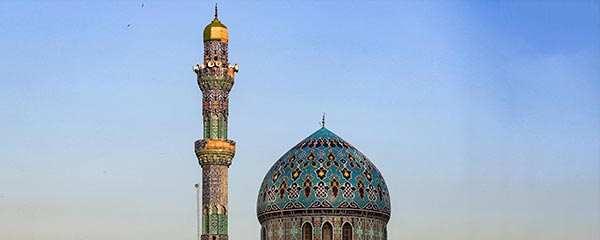Story Highlights
- Majorities in 11 countries disagree U.S. is serious about democracy
- Most don’t think the U.S. will allow people to fashion their political future
- Kuwaitis, Jordanians most likely to see U.S. as serious about economy
WASHINGTON, D.C. -- In the 20 years since the launch of Operation Iraqi Freedom and the celebrations that ensued in Firdos Square as U.S. Marines and Iraqis brought down a statue of Saddam Hussein, developing Iraq as a democracy has been a key objective for the U.S.
But today, Iraqis and residents of 12 other Muslim-majority nations do not view the U.S. as serious about encouraging the development of democracy in the region, nor allowing people to fashion their own political future as they see fit.
Just over one in four Iraqis surveyed in 2022 agreed with the statement that the U.S. is serious about encouraging the establishment of democratic systems in their region. In Afghanistan, a nation invaded two years before Iraq for different reasons but where promoting democracy was also a key U.S. strategy, 14% agreed that the U.S. was serious about it.
The lowest percentages of adults who shared that view are found across the Palestinian Territories, Tunisia and Iran, where fewer than one in 10 agreed.
Most Skeptical U.S. Will Allow Them to Self-Determine Future
In addition to asking whether the U.S. is serious about encouraging the establishment of democratic systems, ���۴�ýalso asked adults across the 13 countries whether they believed the U.S. will allow people in their region to fashion their own political future. Most surveyed were similarly skeptical.
Earlier ���۴�ýresearch across several Muslim-majority nations highlighted that a perceived lack of progress related to U.S. foreign policy toward Muslim-majority nations had been a major driver in negative perceptions of the U.S.
For example, negative views in Egypt were closely linked to a lack of progress on the issues many Egyptians said were most significant to improving their opinion of the U.S., including pulling out of Iraq, removing military bases from Saudi Arabia and supporting the rights of Muslims to elect their own governments.
Those sentiments continued to be expressed across the 13 populations polled in 2022. People in all countries were more likely to disagree than agree that the U.S. will allow people in their region to fashion their own political future.
Most Don’t See an Economic Commitment Either
Across the countries polled, people were less likely to agree than disagree that the U.S. is serious about improving the economic lot of people in their respective regions, with majorities in 11 countries disagreeing. Kuwaitis and Jordanians were the most likely to see the U.S. as serious, but just over a third agree this is the case.
���۴�ýpreviously found that increasing the level of economic concern and support for people around the world was frequently mentioned by respondents when asked what the U.S. could do to improve relations between majority-Muslim nations and the U.S.
Bottom Line
Twenty years after the U.S. launch of Operation Iraqi Freedom, despite stated U.S. desires, relatively few Iraqis or people living in 12 other Muslim-majority countries view the U.S. as committed to supporting democracy in their region or empowering them to chart their own political futures.
To stay up to date with the latest ���۴�ýNews insights and updates, .
For complete methodology and specific survey dates, please review .
Learn more about how the works.


